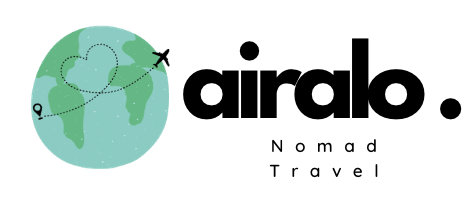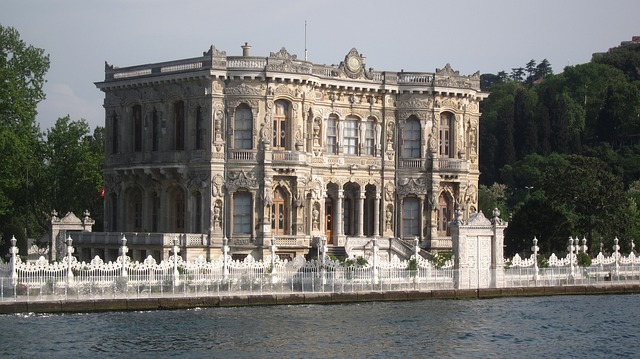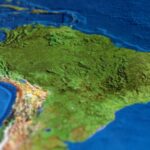
With its rich history, pleasant climate, low cost of living, and active digital nomad community, Turkey is an ideal destination for many digital nomads around the world. In recent years, the Turkish government has launched a digital nomad visa (officially called a “short-term residence visa”), aiming to attract remote workers and freelancers and provide legal residence and work conditions. This article will give you a detailed introduction to how to apply for a Turkish digital nomad visa, visa requirements, procedures, and some key considerations for living in Türkiye.
1. Overview of the Digital Nomad Visa
Türkiye’s digital nomad visa is designed for foreigners who want to live in Türkiye and engage in remote work or freelance work. This visa offers digital nomads a legal and flexible residency option, especially for individuals who wish to continue working remotely while enjoying the Mediterranean climate, rich culture and low cost of living. Here are detailed instructions on Türkiye’s digital nomad visa:
Visa Nature and Work Regulations
- legal residence: The Turkish Digital Nomad Visa allows holders to live legally in Turkey and enjoy similar rights as other short-term residence visa holders, such as renting a house, opening a bank account, applying for a tax ID, etc. This means that digital nomads can not only work in Türkiye, but also enjoy similar living conditions to Turkish residents.
- Remote work and freelancing: Applicants can continue to work remotely, provide services to overseas employers or clients, or operate their own online business. Specifically, whether you are a remote employee, a freelancer (such as a designer, translator, programmer, etc.), or an online business owner (such as operating an e-commerce website, providing online courses, etc.), you can rely on this visa to legally work in Türkiye Live and work.
- Employment prohibited by local companies in Türkiye: An important limitation of this visa is that the holdercannot Providing employment services to companies or individuals in Turkey. This means that the applicant cannot serve as a full-time employee in a Turkish enterprise, and cannot participate in any local labor market work or wages paid by local companies. Instead, they must maintain remote work or self-operated businesses, and these businesses need to serve foreign markets.
Visa validity and renewal regulations
- Initial visa validity period: The initial validity period of Turkish Digital Nomad Visa is usuallyone year. This is to provide applicants with sufficient time to live and work in Türkiye while also ensuring that they continue to be eligible for remote work. The visa cannot be valid for more than one year but can be renewed as needed.
- Renewal requirements: When the visa expires, the holder can apply for renewal. Renewal applications typically require similar materials to initial applications, including proof of income, valid health insurance, proof of accommodation, proof of continued remote work or freelancing, etc. The Turkish Immigration Service will review whether the applicant meets the requirements, including financial ability, legal work status, etc. Holders who successfully renew their visa can continue to live in Türkiye and work remotely, and can renew it up to three times, making the total validity of the visa up to four years.
Applicable objects and work types
- remote workers: This is the core target group for Türkiye’s digital nomad visa. Whether working remotely for a foreign company or signing a contract with an overseas employer, applicants can live in Türkiye for a long time depending on their position. Common remote work types include: project managers, programmers, designers, marketers, etc.
- freelancer: Many freelancers choose Türkiye as a destination to work and live. Designers, writers, photographers, translators, digital marketing consultants, etc. can live and do business in Türkiye with this visa.
- online entrepreneur: Türkiye’s digital nomad visa is also suitable for people running an online business. For example, operating an e-commerce platform, establishing an online education platform or providing virtual assistant services can all be carried out within the framework of this visa.
Visa restrictions
- Not allowed to work locally: This is the clearest restriction of this visa. The holder cannot hold any form of employee or engage in employment-related work in a local company in Turkey. All jobs must be transnational in nature and income must come from outside the country.
- income requirements: Although there is no clearly defined minimum income standard, visa holders need to prove that they have sufficient financial ability to pay for living expenses in Turkey. Generally speaking, applicants are required to provide bank deposit certificates or other documents proving their sources of income.
- Health insurance required: Applicants must provide valid health insurance to ensure medical coverage during their stay in Türkiye. You can choose to purchase local health insurance in Türkiye or provide international health insurance covering the world.
- Proof of accommodation: When applying, applicants need to provide proof of accommodation to prove that they have a legal residence in Türkiye. This could be a rental contract, hotel booking information or other form of proof of residence.
Visa advantages
- low cost lifestyle: The cost of living in Türkiye is low compared to many large cities in Western Europe or North America. Whether it’s housing, food, public transportation or entertainment, Turkey offers a cost-effective living environment. Especially in cities such as Istanbul, Antalya, and Bodrum, digital nomads can enjoy a high quality of life at a relatively low cost.
- Rich cultural and natural landscapes: Türkiye attracts tourists from around the world with its unique history, culture and beautiful natural landscapes. From ancient ruins to sandy beaches along the Mediterranean coast, Türkiye offers digital nomads a wealth of opportunities for leisure and exploration.
- Stable Internet Infrastructure: Türkiye’s major cities offer high-speed internet connections suitable for remote working. Many places also have coworking spaces where digital nomads can mingle and collaborate with other remote workers.
2. Application requirements for digital nomad visa
To apply for a Turkish Digital Nomad Visa, applicants must meet a series of conditions to ensure legal residence and self-sufficiency during their stay in Türkiye. The following are specific application requirements:
income requirements
Applicants need to prove that they have sufficient financial ability to cover living expenses in Turkey. Income requirements often vary based on the applicant’s family situation, city of residence, and lifestyle. The Turkish government does not have completely fixed regulations on income standards, but generally speaking, the following are some common income requirements:
- Minimum monthly income: In most cases, applicants’ monthly income should be at least$500 above. This standard is based on the basic living expenses of a single applicant. If the applicant has family members, the income standard will be increased accordingly. Income requirements generally increase for each additional family member.
- Proof of source of funds: Applicants need to provide proof of stable sources of income, such as bank deposit certificates, contracts or pay stubs, etc., to prove their financial ability to live and work in Turkey. If you are a freelancer or have your own online business, you will need to provide relevant business income or customer payment records.
- financial independence: The Turkish government expects applicants to be able to rely entirely on their own income to cover all expenses in Turkey, without relying on any form of social welfare or local employment.
Job nature requirements
Applicants must demonstrate that they are engaged in qualifying remote work or self-employment. The following are the types of jobs that qualify for Türkiye’s digital nomad visa requirements:
- freelancer: Including freelancers engaged in translation, writing, design, programming, online marketing, consulting, etc. Applicants need to provide contracts or service agreements with customers to prove that they are engaged in remote work of a multinational nature.
- remote employee: If the applicant works for an overseas company, he or she needs to provide an employment contract, payslip or other relevant documents to prove that he or she is a remote employee of the company. Employment contracts for remote work should clearly state job responsibilities and salary packages.
- Online business owner: If the applicant runs his or her own online business (such as e-commerce website, blog, online course, digital marketing company, etc.), he or she needs to provide corresponding business certificates, company registration documents or income records to prove that the source of his income is stable and comes from overseas.
health insurance requirements
To ensure medical coverage while in Türkiye, applicants must provide proof of valid health insurance. These insurances can be provided by local insurance companies in Türkiye or international health insurance with global coverage. Specific requirements include:
- Türkiye local health insurance: Applicants can choose to purchase local health insurance in Turkey. Usually these insurance plans cover medical services in Turkey. When choosing this type of insurance, applicants need to ensure that their coverage is broad enough and meets the visa application requirements.
- international health insurance: For digital nomads who plan to live in Turkey for a long time, there is an option to purchase international health insurance. Many international insurance companies offer health insurance plans designed for long-term travelers or residents, covering medical services worldwide. International insurance generally offers more flexible options for those who wish to live or travel in multiple countries.
- insurance coverage: Health insurance needs to cover basic medical expenses, emergency medical services, and hospitalization. The Turkish Immigration Bureau usually requires applicants to provide detailed proof of insurance to ensure that they can receive adequate medical coverage during their stay in Türkiye.
Proof of accommodation
Applicants need to provide documentation proving they have a place to live. Common accommodation proof materials include:
- rental contract: If the applicant rents a house in Türkiye, he or she is usually required to provide a valid rental contract stating the rental location, lease period, rent and other information. The contract should be signed by the landlord and state the detailed terms of the lease.
- Proof of hotel reservation or accommodation: If the applicant plans to stay in a hotel first, or plans to stay in other places that provide accommodation (such as Airbnb, etc.) for a short period of time, they can also provide relevant booking confirmation information. The reservation form should show information such as the accommodation address, check-in and check-out dates.
- Long term accommodation arrangements: If the applicant plans to stay for a long time, he or she can also provide other forms of accommodation proof, such as invitation letters from relatives and friends or proof of address.
No criminal record certificate
As part of the security clearance, applicants will need to provide proof of a clean criminal record from their home country. This is to ensure that the applicant does not have a criminal background and meets the security requirements of the Turkish Immigration Service. Typically, applicants can obtain this certificate in the following ways:
- Source of certificate of no criminal record: Applicants can apply for a certificate of no criminal record from the police department or relevant judicial authorities in their country. This usually requires providing personal identification documents, residence history and other information.
- Translation and notarization: If the applicant’s criminal record certificate is written in a language other than Turkish, it may need to be translated into Turkish and notarized. Specific requirements will vary depending on the country in which the applicant is located.
- time requirement: Generally, the Turkish Immigration Bureau requires that the criminal record certificate be valid within six months before applying for a visa, so applicants should apply as early as possible and ensure that the documents are current.
3. Visa application process
The process of applying for a Turkish digital nomad visa is relatively simple, but it requires preparation in advance. The entire process can be divided into multiple steps to ensure that each link is adequately addressed. The following is the detailed visa application process:
1. Apply online
Applications for the Turkish Digital Nomad Visa can be made through the Turkish e-Visa website. Online application is the first step in the entire process. Applicants need to visit the official website of the Turkish Immigration Bureau or the designated electronic visa platform and fill in the following information:
- personal information: Including basic personal information such as name, date of birth, nationality, contact information, etc. Applicants need to ensure that all information provided is accurate.
- work situation: Detail the type of remote work you do (e.g. freelance, remote employee, online business, etc.). Information such as the nature of the job, hiring company (if applicable), source of income, and contract details are required.
- Proof of income: The system usually requires applicants to provide proof of income to prove that they have sufficient financial ability to pay for living expenses in Turkey. This section typically requires uploading bank certificates, income statements, tax records, or other relevant financial documents.
- health insurance: It is necessary to provide valid proof of health insurance to ensure that the applicant can obtain medical coverage during his stay in Türkiye. Policy information from local Turkish insurance companies or international health insurance can be uploaded.
- Other information: Sometimes the system will ask to upload other supporting documents, such as proof of residence (rental contract or hotel reservation), certificate of no criminal record, etc. Make sure all necessary materials are available.
2. Document preparation
After submitting the online application, applicants need to prepare and submit a series of original documents, including:
- Valid passport: The passport usually needs to be valid for at least six months and have at least two blank visa pages.
- Proof of income: It is usually necessary to provide a bank deposit certificate, income statement or employer’s work contract to prove that the applicant has sufficient funds to support his or her life in Turkey. If you are a freelancer, you also need to provide customer contracts, invoices or other income proof materials.
- No criminal record: Applicants need to provide proof of no criminal record from their home country or country of residence. This usually requires applying to the local police and providing relevant information.
- Proof of health insurance: Valid proof of Turkish or international health insurance upon request. The insurance should cover the applicant’s medical needs during their stay in Türkiye.
- Proof of accommodation: If the applicant has confirmed the place of accommodation, he or she needs to provide a rental contract or hotel reservation information to prove that he or she has a stable place to live.
Make sure all documents meet the requirements and are uploaded in the prescribed format. Translation of documents is also necessary, especially non-Turkish documents, such as criminal record certificates, income certificates, etc., which usually need to be translated into Turkish.
3. Make an appointment for an interview (if applicable)
While most applications for the Turkish Digital Nomad Visa can be completed online, in some cases applicants may also be required to undergo an interview, especially if the applicant needs to submit some original documents. The interview usually takes place at the Turkish consulate or embassy.
- Make an appointment for an interview: If an interview is required, the applicant must make an appointment in advance on the official website of the Turkish consulate or embassy. Interviews typically require applicants to be present in person and submit original documents to complete identity verification and further approval procedures.
- Interview materials: During the interview, applicants are required to bring all original documents, including passport, income certificate, health insurance certificate, criminal record certificate, etc. Staff will review these materials to ensure that the application meets all requirements.
- Interview content: The interview is usually a simple process in which applicants answer some basic questions about their job, sources of income, living arrangements, and more. The main purpose is to verify the applicant’s identity, employment status and planned living arrangements in Turkey.
4. Pay the visa fee
After submitting all materials, applicants need to pay the visa application fee. The fee usually includes the following two parts:
- Visa application fee: This is the fee required to apply for the visa itself. The fee standards may change. For specific amounts, please refer to the latest information on the Turkish Immigration Service website.
- Residence permit fee: If the visa application is approved, the applicant may also need to pay a residence permit fee. This is the administrative fee for the applicant’s stay in Türkiye and is used to handle long-term residence-related matters.
Payment methods generally include bank transfer, credit card or other electronic payment methods, depending on the requirements of the Turkish Immigration Bureau or Consulate. After payment, be sure to save the payment voucher for subsequent inquiry or use.
5. Waiting for approval
Once the payment is completed, the Turkish Immigration Service will start reviewing the application. This stage usually requires1 to 2 months The specific review time may change according to the applicant’s situation and the peak application period.
- Approval process: The Turkish Immigration Service will review all submitted materials to ensure that the application meets all conditions. They may ask applicants to provide additional documentation or clarify certain information. If there are any questions, the Immigration Service will contact the applicant by email or phone.
- Approval notice: After the approval is completed, the applicant will receive an email notification informing whether the application was successful. If the visa application is approved, detailed visa approval information will be provided in the email.
6. Get a visa and travel to Türkiye
Once the application is approved, the applicant will receive a visa approval notification and can travel to Türkiye.
- Visa Approval Notification: Applicants will be notified electronically of their visa approval, usually via email. This notification contains all necessary entry information as well as visa validity.
- Entering Türkiye: With the visa approval notification, the applicant can plan to travel to Turkey and present the relevant documents to Turkish border control personnel upon entry. At this point, applicants need to bring all original documents with them in case border agents ask to see them.
- Residence registration: After arriving in Türkiye, applicants usually need to register their residence at the local immigration office and apply for a residence permit.
4. Living and working in Turkey
After obtaining a Turkish digital nomad visa, you will be able to legally live and work remotely in Turkey, enjoying more flexible work and life options. Here are some details about living and working in Türkiye:
stay
Rent in Türkiye is cheaper than in other Western European or North American countries, especially in the suburbs of major cities and some smaller cities. Different cities offer different accommodation options to suit every budget and need:
- Istanbul: As the largest and most cosmopolitan city in Türkiye, Istanbul is one of the most popular places for digital nomads to live. Accommodation options here range from luxury apartments in the city center to cost-effective apartments in the suburbs. Although rents are higher in the city center, prices are relatively more affordable in outer areas, with places like Beşiktaş and Kadıköy often favored by young digital nomads.
- antalya: This city on the Mediterranean coast is not only famous for its beautiful beaches, but is also an ideal choice for many digital nomads and retirees. Rentals in Antalya are relatively low and suitable for people who want to enjoy a quiet life. You can find affordable studio apartments or small villas here.
- pamukkale: This is a tourist city in Turkey famous for its white natural limestone hot springs. Although it is a tourist destination, the relatively low cost of living and peaceful environment make it another ideal destination for digital nomads.
- Accommodation type: In addition to regular apartment rentals, many digital nomads choose to rent shared apartments with others, which not only allows them to share the rent, but also allows them to connect and socialize with other digital nomads from around the world. Rental contracts are usually flexible and can be signed on a monthly or annual basis, depending on the landlord you choose.
Network and workspace
Türkiye’s internet infrastructure is very good, especially in major cities and business districts. Whether you choose to work from home or outside, the internet connection is usually high-speed and stable:
- shared office space: Many cities, especially Istanbul and Antalya, offer a variety of co-working spaces that are suitable for digital nomads who need a good working environment and social opportunities. picture WeWork and would rule Well-known international brands such as . Shared office spaces not only provide high-speed Internet, but are also equipped with office equipment, conference rooms, coffee shops and other facilities to provide digital nomads with an efficient and comfortable working environment.
- cafe job: Turkey has a rich coffee culture, with various cafes scattered throughout the city. Many cafes provide free Wi-Fi and a comfortable environment, becoming the workplace of many freelancers and digital nomads. Especially in Taksim Square in Istanbul or the business district of Ankara, the working atmosphere in cafes is very strong. Many cafes also have dedicated work areas, suitable for long hours of work.
- home office: If you prefer to work from home, many apartments and rentals in Turkey offer enough space to set up a comfortable home office. Most apartments are equipped with high-speed internet, and in residential areas of some major cities, shared resources for home offices are sometimes provided.
language
Although the official language of Turkey is Turkish, many Turks, especially young people and those working in the service industry, speak English fluently, especially in urban and tourist areas. You can communicate in English in many public places, restaurants and shops. However, learning some basic Turkish can still help you better integrate into the local culture and community. For example, simple greetings, common shopping phrases, and traffic directions can all make you feel more comfortable in your daily life.
- English communication: In big cities, such as Istanbul, Ankara and Izmir, English is more popular, especially in tourist attractions and business districts. Many shops and service industry personnel can understand and use English. But in more remote places or small towns, where English may be more limited, learning some basic Turkish can be very helpful.
cost of living
The cost of living in Türkiye is among the lowest globally, especially outside the major cities. Digital nomads can enjoy a high quality of life at a lower cost:
- food: Türkiye’s dining culture is rich and affordable. You can buy fresh fruits, vegetables, meat and seafood at low prices at your local market or supermarket. Turkish street food is also very famous and affordable, likeKebab、Pancakes (Waiting) You can find delicious food at street stalls, and the prices are usually very affordable.
- public transport: Turkey has a well-developed public transportation system, especially in large cities. Public transportation in Istanbul, such as metros, buses and ferries, is very convenient and relatively cheap. If you live in an urban area, transportation costs won’t be a big burden.
- Entertainment and cultural activities: Türkiye is rich in history and cultural heritage and offers a wealth of entertainment options, whether it’s museums, historical sites or local festivals. Tickets for these events are usually very affordable and relatively cheap compared to similar events in Western Europe or North America.
- Accommodation fee: As mentioned before, rent in Türkiye is relatively cheap, especially compared with other European and American countries, the cost of living advantage is more obvious. Whether it is long-term apartment rental or short-term rental, the prices are relatively reasonable, allowing digital nomads to enjoy a high-quality life.
5. Visa extension and renewal
Digital nomad visas in Türkiye are usually valid for one year, and visa holders can apply for renewal before the visa expires. This renewal process is relatively straightforward, but does require submitting a series of documents to prove that you are eligible for renewal. Below are detailed instructions regarding visa extension and renewal:
Renewal requirements
- Proof of financial ability:
- In order to prove that you have sufficient financial means to continue living in Türkiye, you will need to provide updated proof of income. This may include documents such as recent bank statements, tax returns or income contracts. You need to prove that your income in the past period meets the minimum standards set by the Turkish government, which is usually at least US$500 per month (the specific amount may vary depending on your place of residence and lifestyle). You can also submit a letter from your employer indicating that you continue to work remotely and are being compensated accordingly.
- Proof of continued remote work:
- Renewal applicants need to prove that they are still engaged in qualifying remote work. You can provide documents such as work contracts, employment certificates, freelance contracts, or proof of online business operations to prove that you still have a stable income from remote work. Specifically, the documentation should prove that you are not engaged in any local employment or employment relationship within Türkiye.
- health insurance renewal:
- Health insurance is an important requirement when renewing. You will need to provide updated proof of health insurance to ensure you continue to have medical coverage during the renewal period. Turkey’s digital nomad visa requires the holder to have valid health insurance throughout the visa period. The insurance can be provided by a local Turkish insurance company or an international insurance company. Insurance should cover all possible medical needs, including emergency medical assistance, hospitalization, illness or accident, etc.
- Proof of accommodation:
- Some regions or immigration offices may require proof of residence in Türkiye. You need to submit a current rental contract or accommodation certificate provided by the landlord to prove that you still have a legal residence in Türkiye. Especially if you change accommodation, remember to update this information.
- No criminal record certificate(if applicable):
- If your place of residence has changed since you first applied for a visa, or if you have engaged in legal action during your stay in Turkey, the Immigration Bureau may require you to submit a criminal record certificate or other relevant legal documents. This step is not required for every renewal application, but in special circumstances, the relevant department may require it.
Renewal application process
- Apply in advance: Before your visa expires, it is recommended to apply for renewal 30-60 days in advance. This gives you enough time to prepare the required documents and deal with possible delays.
- Online application and document submission: Most renewal applications can be completed through the official website of the Turkish Immigration Service or the relevant electronic visa platform. Fill out the relevant forms on the platform and upload the required documents (proof of income, employment, health insurance, etc.). Some areas may require you to submit documents in person to the immigration office or Turkish consulate.
- Pay renewal fee: When submitting your renewal application, you will need to pay certain fees, which usually include visa application fees and residence permit administration fees. The amount of the fee varies depending on the visa type and length of stay.
- Awaiting review and approval: The Turkish Immigration Bureau will review your renewal application, and the review process usually takes 1-2 months. During this period, the Immigration Service may request additional materials or further interviews. Make sure you stay in communication with immigration authorities throughout the process so that any issues are resolved early.
Things to note when renewing your visa
- time schedule: Try to avoid applying for renewal at the last minute before your visa expires. If your visa has expired, you may face fines or other administrative issues. Therefore, be prepared in advance and submit your renewal application within the prescribed time.
- Risk of renewal rejection: If you fail to meet the requirements during the renewal process (such as insufficient proof of income, failure to provide valid health insurance, etc.), the Immigration Bureau may reject your renewal application. In this case, you may need to leave Türkiye and reapply for a visa or seek other legal means of residence.
6. Advantages of the Digital Nomad Visa
Türkiye, as a destination for digital nomads, offers many unique advantages, making it the country of choice for an increasing number of remote workers and freelancers. The following is a detailed advantage analysis:
1. Low-cost living
Compared to many large cities in Western Europe and North America, the cost of living in Turkey is relatively low, especially when it comes to housing, food, and daily transportation. Specifically:
- housing costs: Rental prices in Türkiye are still relatively moderate in major cities and some tourist cities. For example, the central areas of Istanbul and Antalya, despite rising rents, remain affordable compared to larger cities such as London, Paris or New York. One month’s rent ranges from approximately $200 to $600, depending on location and housing type. You can choose to live in an apartment, a shared apartment or a short-term rental with great flexibility.
- Food & Beverage: Dining prices in Turkey are cheaper than in many European countries, especially local traditional dishes, such as Turkish kebab, shawarma, Turkish breakfast, etc., which are moderately priced and delicious. Eating out usually only costs US$10 to US$20 per meal, and the cost of buying daily food in the supermarket is also low, making it suitable for long-term living.
- transportation costs: Turkey’s public transportation systems (such as metros, buses, and trams) are reasonably priced, especially in big cities like Istanbul, where monthly passes and one-way fares are relatively cheap. For digital nomads, transportation costs in Türkiye make daily commuting and traveling more economical.
2. Vibrant digital nomad community
Turkey’s digital nomad community is growing, especially in major cities such as Istanbul, Antalya and Bodrum, where more and more remote workers and freelancers are choosing these places as a base for work and life.
- Networking and collaboration opportunities: These cities have increasingly active digital nomad communities, and you’ll have the opportunity to network, collaborate, and share experiences with peers from around the world. Whether at a local coffee shop, a co-working space, or a networking event, digital nomads can easily meet like-minded people and expand their professional and personal networks.
- Shared workspace: There are multiple shared office spaces (such as WeWork, Regus and local specialty spaces) in cities such as Istanbul, Antalya and Bodrum. These places not only provide desks, stable networks and comfortable working environments, but also often organize Networking events, skill-sharing and career development sessions help digital nomads connect with other industry experts.
- Entrepreneurship support: For digital nomads interested in starting a business, Turkey provides a certain degree of government support and preferential policies, especially within some regional economic development plans and free zones. You can take advantage of local government resources and policies to build and expand your online business.
3. Beautiful natural environment
Türkiye’s strategic location, spring-like climate all year round and rich natural landscapes make it an ideal place to combine work and leisure.
- Beaches and Resorts: Türkiye has beautiful beaches, especially in resorts along the Mediterranean and Aegean coasts such as Antalya, Bodrum and Fethiye. Whether you are vacationing at the beach, diving, or enjoying a leisurely walk along the coastline, it can provide an ideal place for digital nomads to relax and unwind after a stressful work day.
- History and cultural heritage: Turkey is also rich in historical sites and cultural attractions, such as Hagia Sophia in Istanbul, hot air balloons in Cappadocia, and the ancient city of Ephesus, providing explorers with endless travel options. Türkiye’s historical heritage and natural landscapes are intertwined, allowing every visitor to find a way to travel here that suits them.
- Mountains and Outdoor Activities: For digital nomads who enjoy climbing, hiking, and other outdoor activities, Turkey’s mountains and canyons offer a wealth of adventure opportunities. For example, the Ardeniz Mountains and the Mugla Mountains are paradises for mountaineering and camping enthusiasts, while the hot air balloon experience in Cappadocia is one of the iconic activities for people visiting Turkey.
in conclusion
Turkey’s digital nomad visa offers remote workers and freelancers an ideal option to live and work, especially digital ones who want to spend some time in a culturally rich country with a pleasant climate and low cost of living. homeless. With this visa, applicants can legally reside and work or freelance remotely while enjoying Turkey’s rich history, natural landscapes, and stable internet infrastructure. Despite some restrictions, such as not being allowed to work for local Turkish companies, Turkey offers an attractive environment for freelancers or remote employees who wish to maintain a multinational presence.
Applying for a Turkish digital nomad visa requires preparing certain proof of finances, health insurance and accommodation, and following a clear application process. For those who meet the requirements, Turkey is not only a great place to work and live, but also an ideal four-year residency option for digital nomads looking for a flexible lifestyle and cultural experiences. If you are looking for a destination that has a lower cost of living and offers a high quality of life, Türkiye is certainly an option worth considering.





